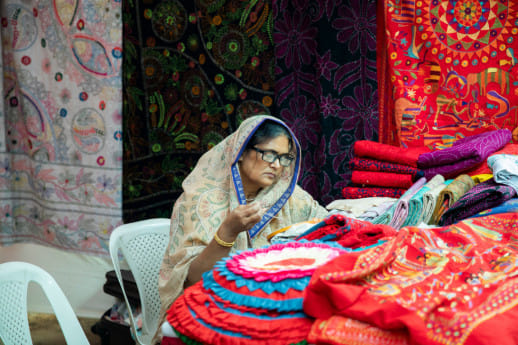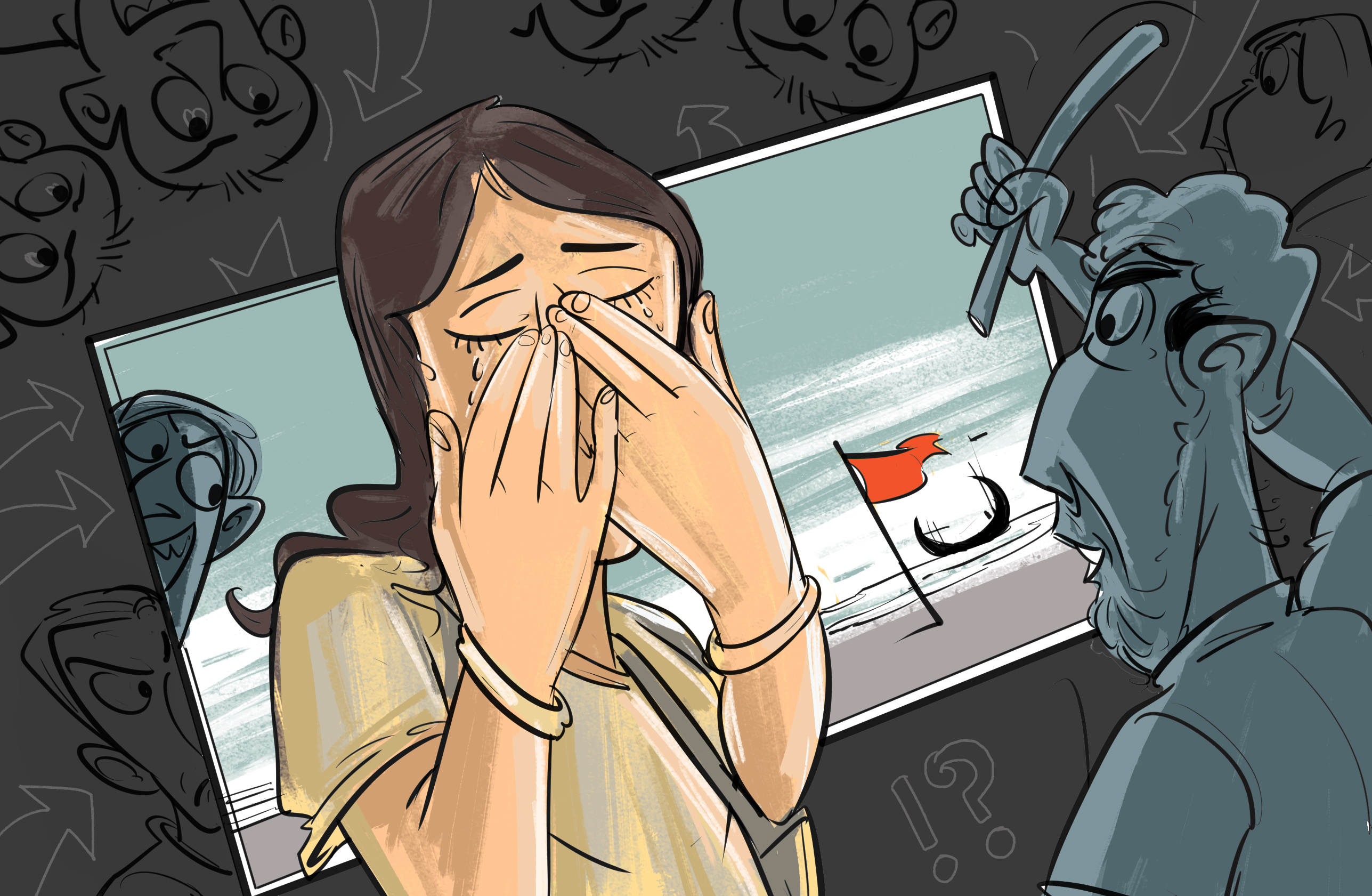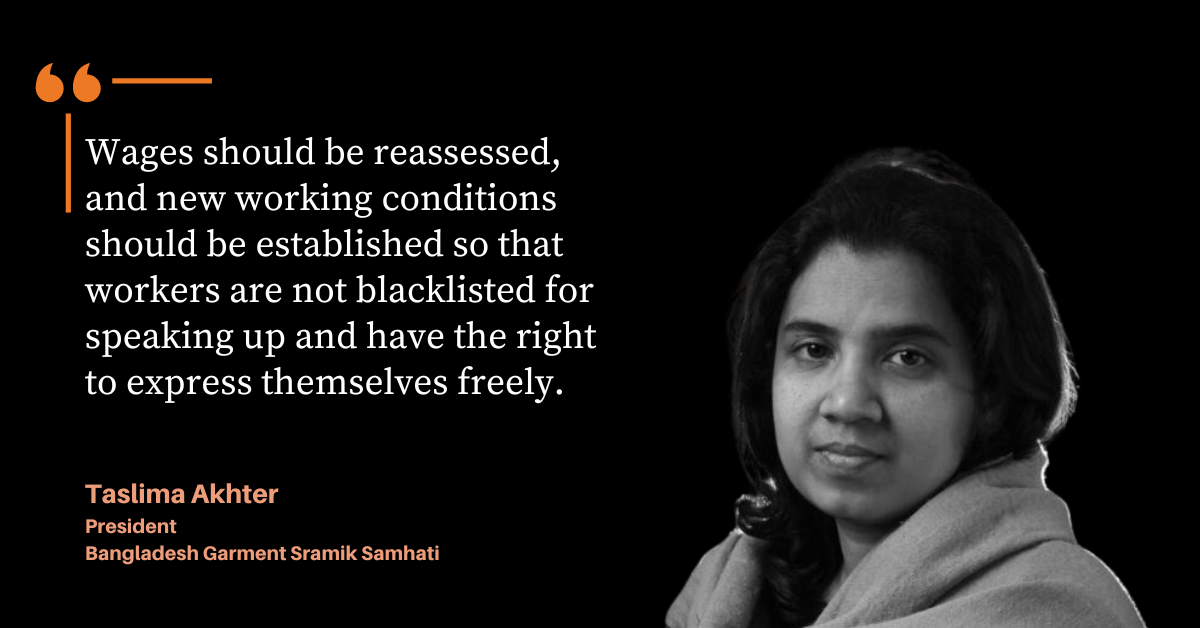Womenomics: What women entrepreneurs can do for a smart economy

Womenomics, coined by Goldman Sachs analyst Kathy Matsui, was introduced as a policy by former Japanese Prime Minister Shinzo Abe in 2013 to promote gender equality in the workforce and stimulate economic growth in Japan. Womenomics is a smart social policy to motivate women to be smart and create a smart economy that will increase the world's GDP by $12 trillion by 2025.
French economist Jean-Baptiste Say coined the term entrepreneur in 1800 and defined it as "one who undertakes an enterprise, especially a contractor, acting as intermediatory between capital and labor."
In Bangladesh, as per the Industrial Policy 2016, a woman is considered an entrepreneur if she owns a business as a proprietor, or in the case of a partnership organisation, owns 51 percent of a company registered with the office of the Registrar of Joint Stock Companies (RJSC).
Empowering women economically paves the way for inclusive and sustainable development. In Bangladesh, women's increasing participation in the job market is one of the main outcomes of Womenomics, especially as an entrepreneur. Bangladesh has a high potential to create "EntrepreNaari," a term invented by Navya Naveli Nanda, an Indian entrepreneur. The word refers to a movement advocating for women's entrepreneurship.
Women own just 7.2 percent of enterprises in Bangladesh. The Bangladesh Bureau of Statistics (BBS) estimates that 28 lakh SMEs in Bangladesh were owned by women in 2020, accounting for roughly 24.6 percent of all SMEs here.
" layout="left"]In Bangladesh, women's introduction to entrepreneurship is the result of a complex interplay between opportunities and barriers, as well as outside aims and forces. According to the 2013 economic census, the total number of industrial units in Bangladesh stands at 78,18,565. Of them, 563,368 are companies headed by women, and 37,349 are SMEs led by women. According to the SME Foundation, women entrepreneurs have received 30 percent of a Tk 300 crore government incentive.
Additionally, in Bangladesh, women created about 40 percent of Facebook groups about entrepreneurship. Women entrepreneurs also have a significant impact on Bangladesh's GDP. They have made substantial contributions to the small and medium enterprise (SME) sector, which made up about 25 percent of the country's GDP in 2021.
One of Bangladesh's first women entrepreneurs is Selina Qadar. She concentrated on agriculture, one of the nation's main sectors. In 1980, she noted that the government only offered a 10 percent export subsidy for potatoes. In 1985, she founded Agriconcern to promote the export of potatoes and produced 10,000-20,000 metric tonnes of potatoes annually, encouraging farming among women local business owners.
Women in urban areas are involved in various small and medium business enterprises such as handicrafts, fashion houses, beauty parlours, home textiles, food, cooperatives, chain shops, ICT, and even some larger businesses to some extent. In rural areas, many women are self-employed in agricultural and non-agricultural sectors, engaging in activities such as cropping, rearing livestock and poultry, fish farming, nursery and tree planting, making tools, handcraft, processing food, tailoring, processing rice, etc.
Women entrepreneurs in Bangladesh are using a variety of platforms to run their businesses. These include Facebook and Instagram, brick-and-mortar stores, community-based organisations, e-commerce platforms such as Daraz and Amazon, fintech tools such as mobile banking and online lending, and business management software. However, women are still left out of the formal financial system. To address this, the government has launched several efforts, such as programmes to enhance financial literacy, remove barriers based on cultural differences, and increase access to financial services in rural areas. Yet, digital services are still severely hampered by a lack of access to mobile phones, cell coverage and the internet, and this is especially true for women.
As of 2024, per the Global System for Mobile Communications Association (GSMA), mobile internet adoption rates are 40 percent for men and only 24 percent for women in Bangladesh. The use of technology, particularly in mobile financial service/digital financial service (MFS/DFS), highlights issues about the digital gender gap. Minimising this gap in its different forms is essential to ensure inclusive, sustainable economic growth and integrate all adult individuals and small enterprises into a "financial ecosystem."
A wide range of industries, including technology, manufacturing, e-commerce, agriculture, and services, is seeing significant advancements among women. Microfinance programmes, women-specific financial services, and focused policy interventions are a few examples of initiatives that can significantly contribute to women's entrepreneurial empowerment. The Bangladesh Bank has several noteworthy programmes to foster entrepreneurship, particularly among women. It established the Credit Guarantee Scheme providing SMEs in various cluster regions with more access to financing women entrepreneurs.
Fostering women's economic empowerment in Bangladesh is essential for developing a framework to support women's entrepreneurship. A country's progress towards gender equality and inclusive economic development can be gauged by the number of women entrepreneurs. Their contribution will accelerate the sustainable development of a smart economy with assistance from the government, civil society organisations, and stakeholders. It is high time we helped Banglar Nari to evolve as "EntrepreNaari."
Dr Soma Dhar is a research economist and independent consultant.
Views expressed in this article are the author's own.
Follow The Daily Star Opinion on Facebook for the latest opinions, commentaries and analyses by experts and professionals. To contribute your article or letter to The Daily Star Opinion, see our guidelines for submission.



 For all latest news, follow The Daily Star's Google News channel.
For all latest news, follow The Daily Star's Google News channel. 

Comments